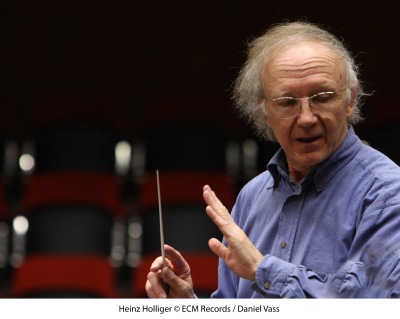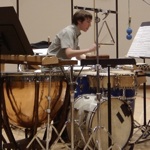 The spring festivals are underway; here are three you should know about.
The spring festivals are underway; here are three you should know about.
1) In Boston, the new Beeline Festival (curated by Evan Ziporyn and Christine Southworth) continues tonight with performances by Ensemble Robot and The Loud Objects. The final concert will be Sunday, with performances by Gamelan Galak Tika and Dewa Ketut Alit. With Beeline it seems that Boston finally has a new music festival with more of a Downtown slant.
2) Tonight in Brooklyn, the first annual New Music Bake Sale runs from 7PM to midnight, featuring music from So Percussion, Lisa Moore & Martin Bresnick, Lukas Ligeti, Newspeak, ACME, JACK Quartet, Dither, loadbang, and Ensemble de Sade. Plus, the event really is a bake sale — the ensembles performing and more than a dozen other groups and organizations will be selling goodies from their bake sale tables to raise money for their future activities.
3) Bang On A Can just announced this year’s Marathon for May 31st, which will once again be held at the Winter Garden of the World Financial Center in Lower Manhattan and will kick off the River To River Festival. Twelve hours of music, from noon to midnight. I’ll just quote the press release: “Music by: Andy Akiho, Gavin Bryars, Jeppe Just Christensen, Eric km Clark, Joe Cutler, Moritz Eggert, Bill Frisell, Michael Gordon, Ted Hearne, Pelle Gudmundsen-Holmgreen, Phil Kline, David Lang, Steve Martland, Matthew McBane, Meredith Monk, Anders Nordentoft, Ryuichi Sakamoto, Howard Skempton, Kevin Volans, Julia Wolfe, Evan Ziporyn, AND MORE. Performances by: Ars Nova Copenhagen, Athelas Sinfonietta, Bang on a Can All-Stars, DITHER, Ethel, Bill Frisell, Brooklyn Rider, Build, Shiau-uen Ding, Henry Grimes & Andrew Cyrille, Paul Hillier Lionheart, Ryuichi Sakamoto, Ken Thomson’s 9-headed Saxophone Monster, Smith Quartet, Signal, Sandeep Das, Tortoise, Victoire, Wu Man, Your Bad Self, AND MORE.”
3a) Also, it’s not a festival per se, but there’s a major performance of Terry Riley’s “In C” at Carnegie Hall on Friday, April 24th. I’ll be covering it, so watch this space.
3b) And speaking of Christine Southworth (co-curator of the Beeline Festival), almost a year ago she released a CD called “ZAP!” I specifically asked her to send me a copy so I could review it, and it’s really good, but I never actually wrote the review. Check it out here. There’s even a video of a live show which includes live performance on the Van de Graff Generator at the Boston Museum of Science.


 We’ve reached the final concert of
We’ve reached the final concert of  Apropos this Wednesday’s Michael Gordon Trance performance
Apropos this Wednesday’s Michael Gordon Trance performance  Sunday afternoon was the final concert provided by Esa-Pekka Salonen as Music Director of the Los Angeles Philharmonic. He has consistently said that he’ll be back with us on a regular basis, but before the start of the concert, the administrative management and the Board came on stage to announce to us the Salonen now has the title of Conductor Laureate and will return on a regular and “significant” basis in the future. The nature of the continuing role was not announced, but it is consistent with how well the Phil (and Salonen) have handled this transition that the details on the role of the future would wait to be announced until after Dudamel is on board and present.
Sunday afternoon was the final concert provided by Esa-Pekka Salonen as Music Director of the Los Angeles Philharmonic. He has consistently said that he’ll be back with us on a regular basis, but before the start of the concert, the administrative management and the Board came on stage to announce to us the Salonen now has the title of Conductor Laureate and will return on a regular and “significant” basis in the future. The nature of the continuing role was not announced, but it is consistent with how well the Phil (and Salonen) have handled this transition that the details on the role of the future would wait to be announced until after Dudamel is on board and present. It’s hard to imagine a percussionist that you would want to perform your music more than
It’s hard to imagine a percussionist that you would want to perform your music more than  The spring festivals are underway; here are three you should know about.
The spring festivals are underway; here are three you should know about.